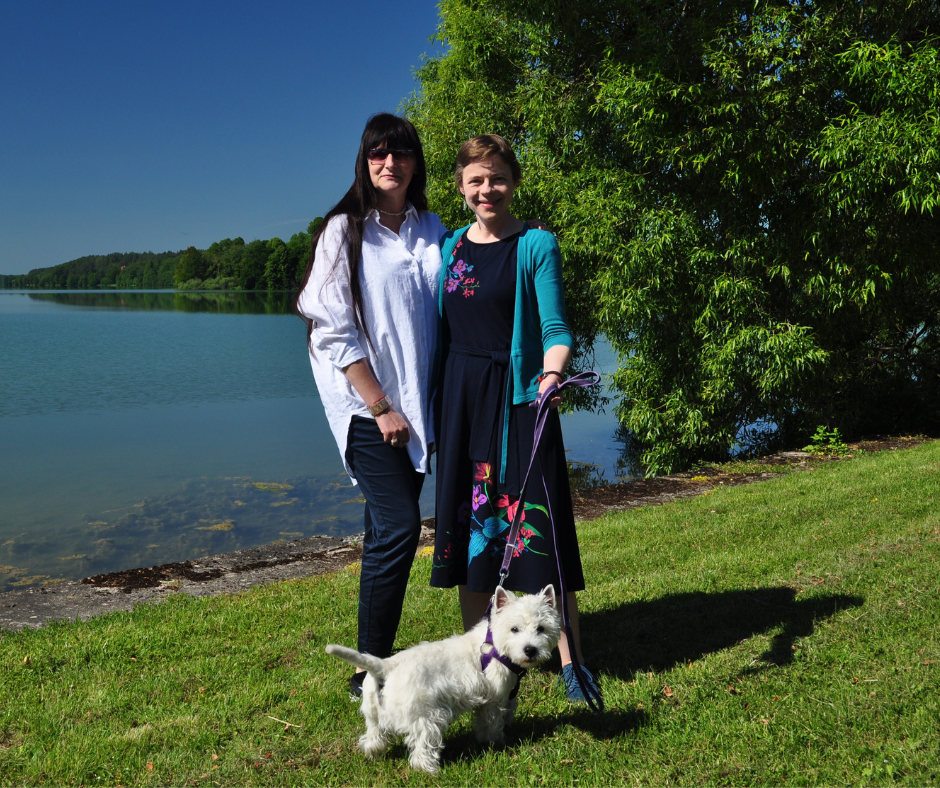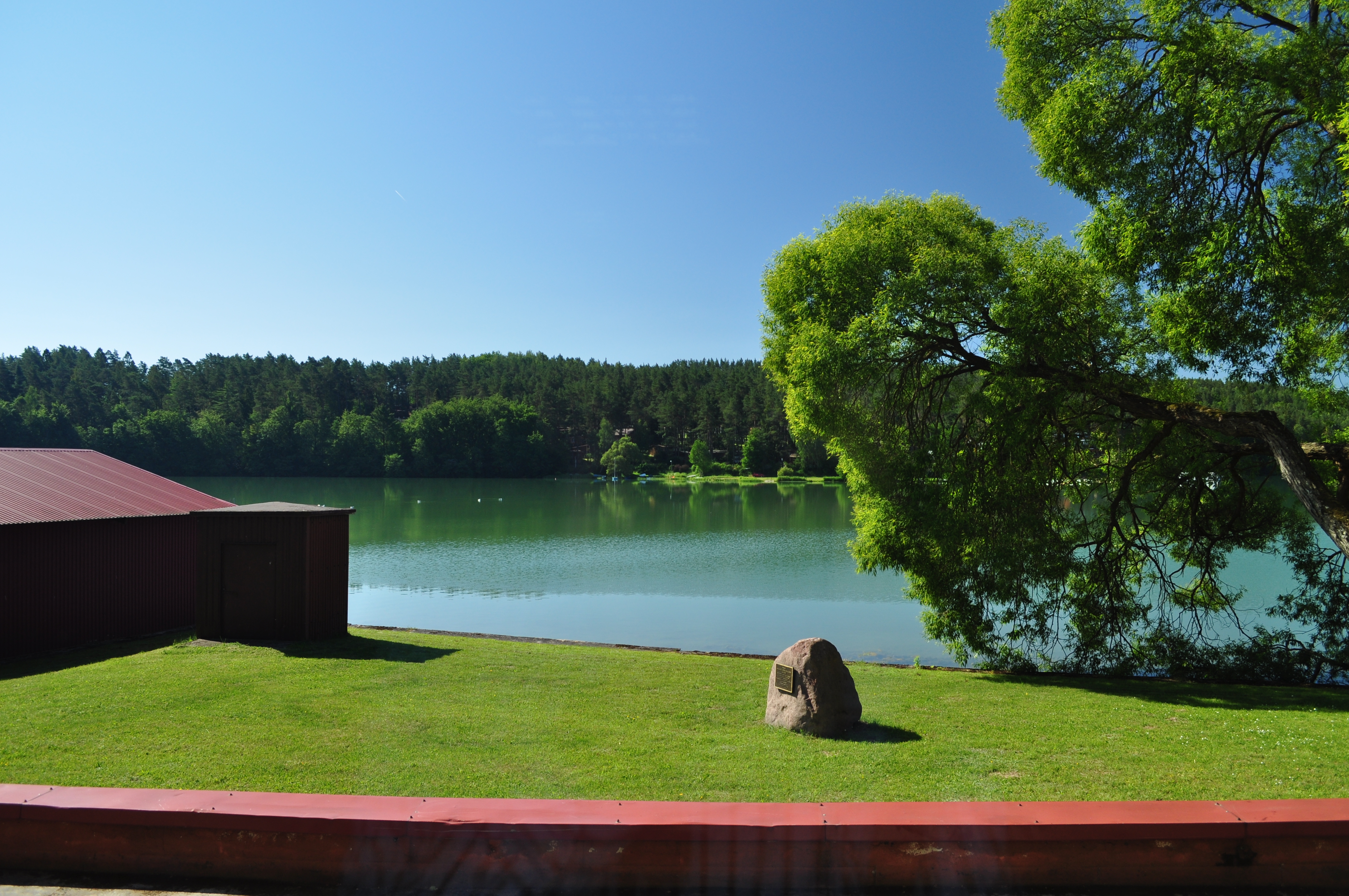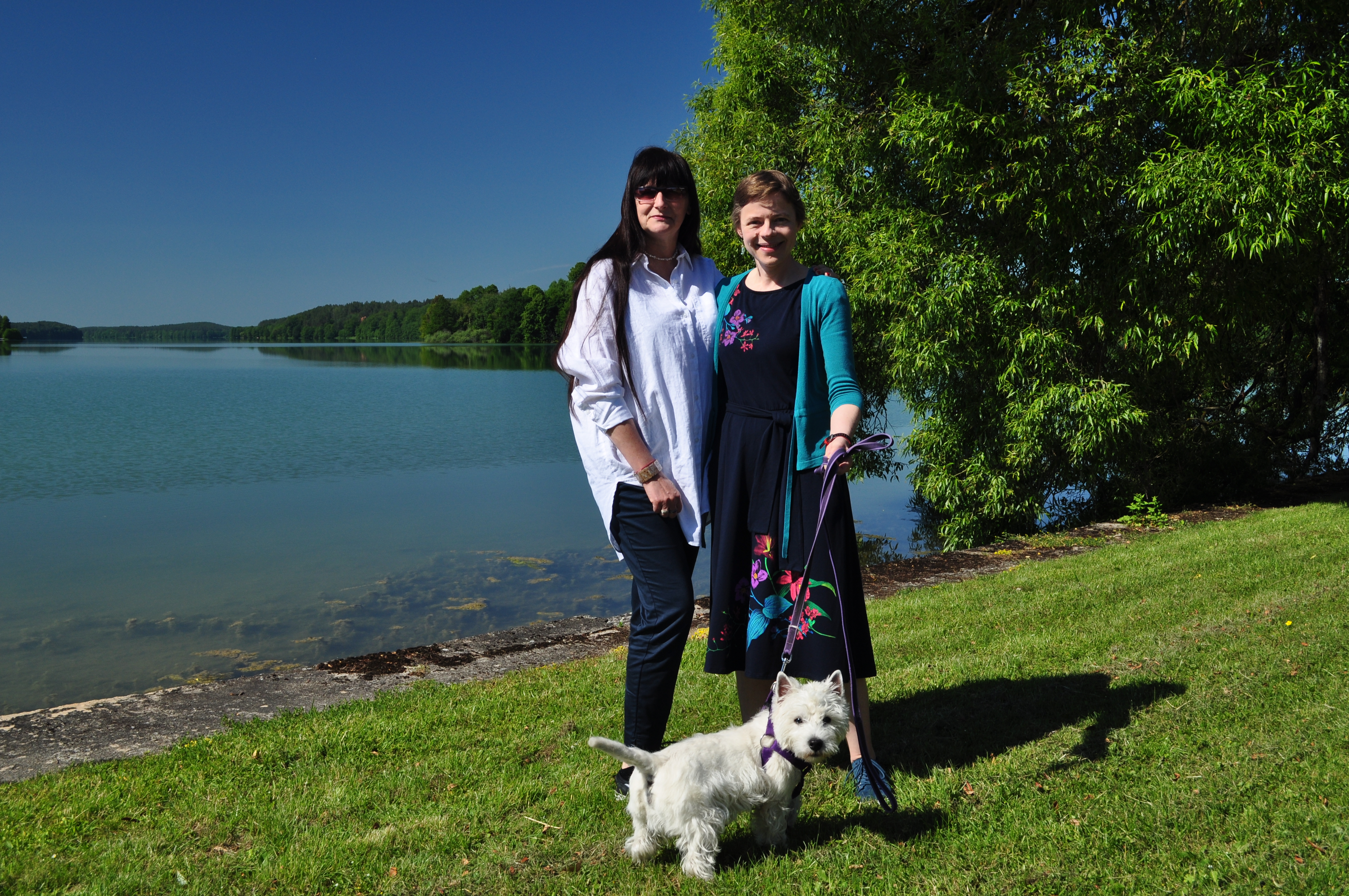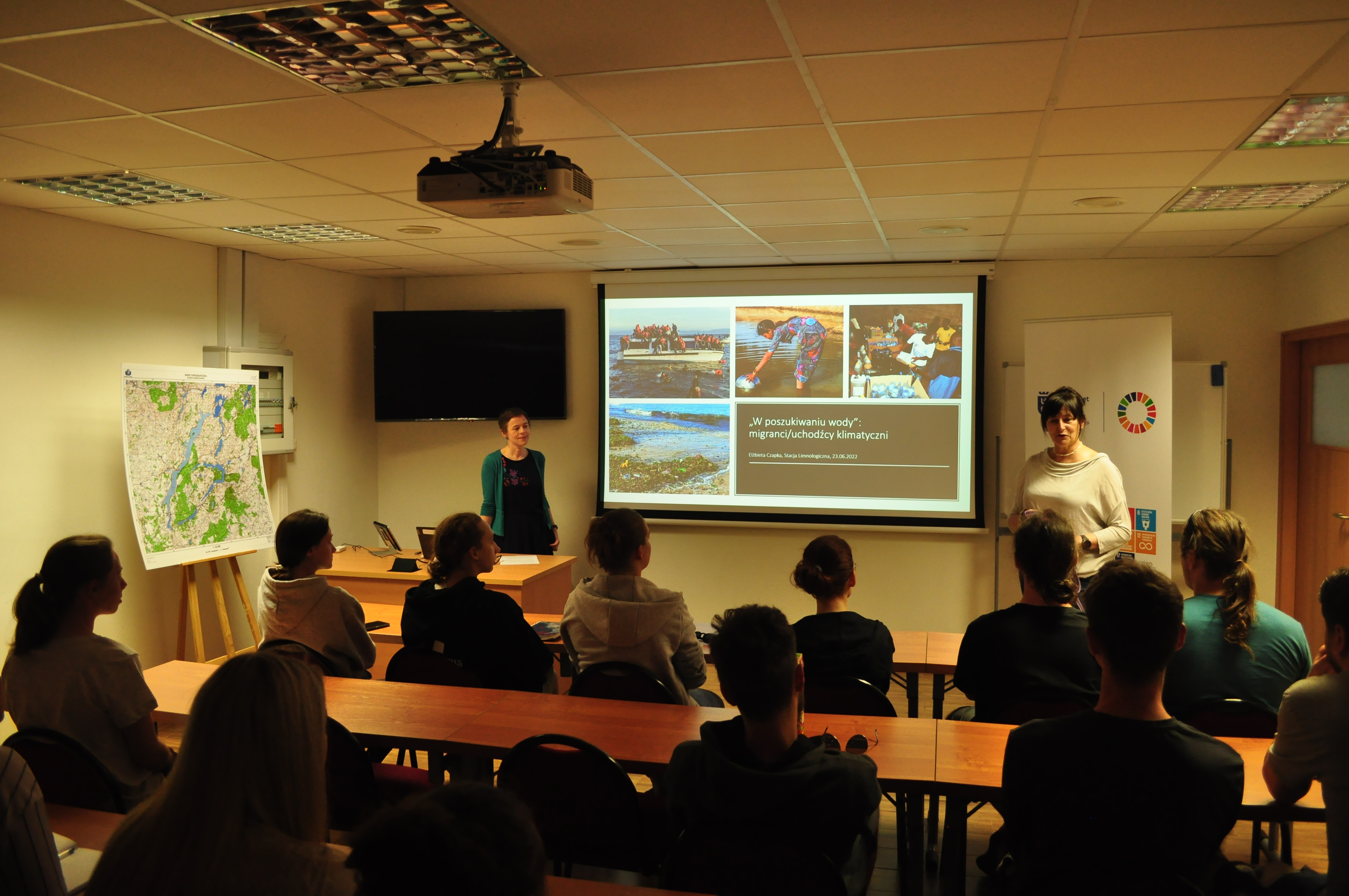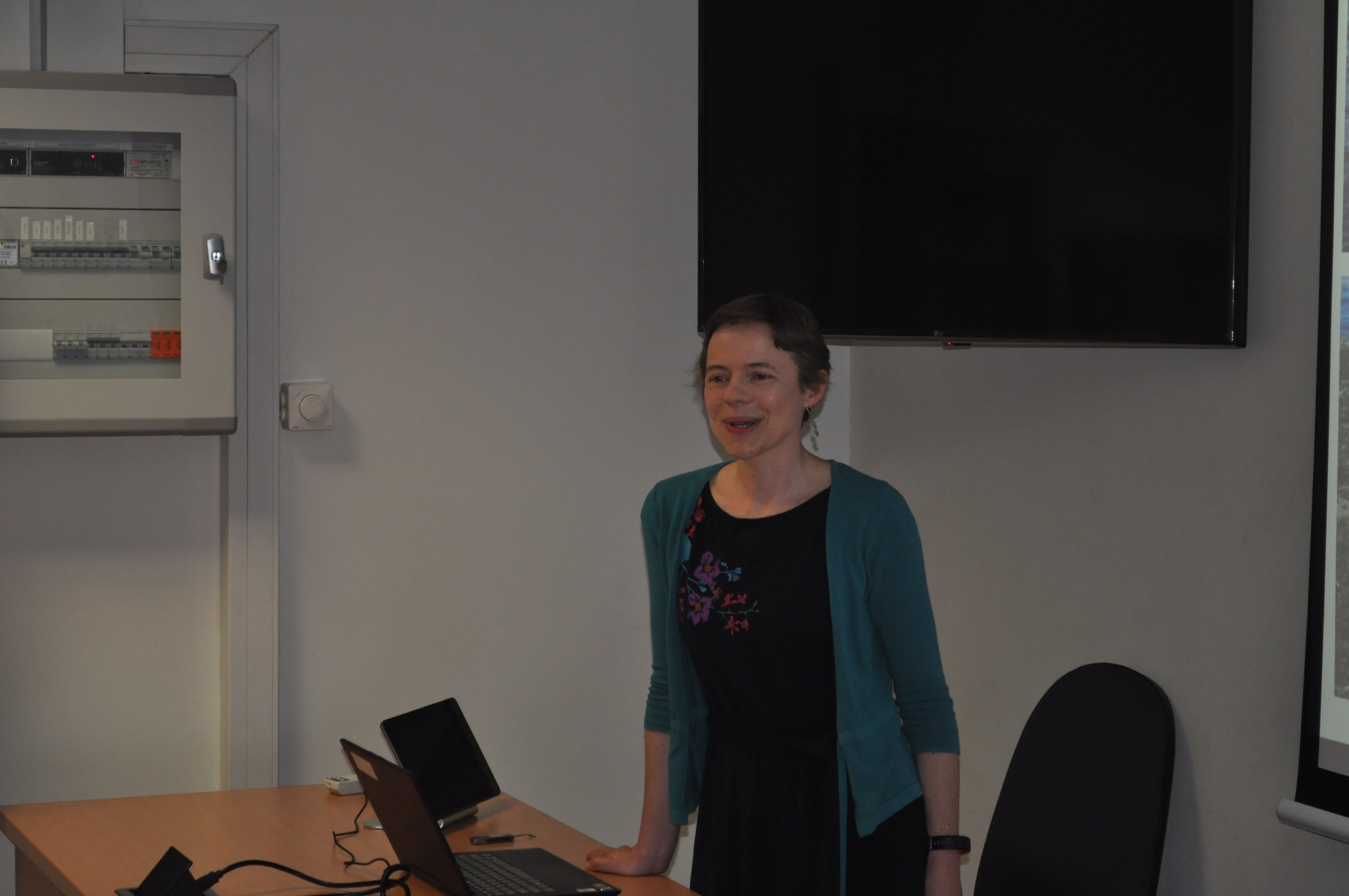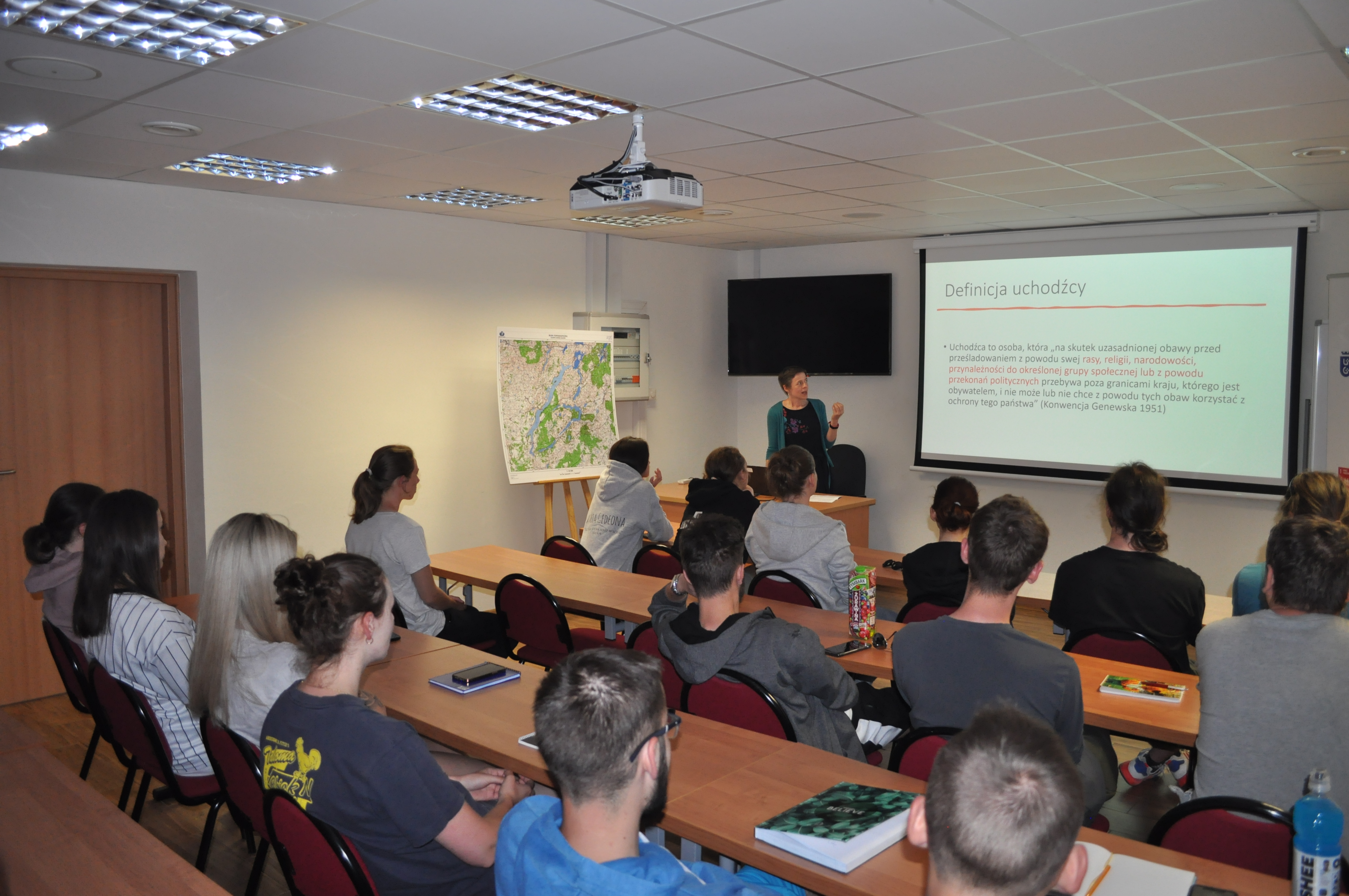Water, climate migrants and refugees were the subject of a seminar of Elżbieta Czapka, PhD, at the Limnological Station UG organised by Prof. Julita Dunalska. The presentation was attended by first-year students of Physical Geography with Geoinformation.
The Limnological Station of the University of Gdańsk is located in Borucino, 50 km from Gdańsk, on the Raduńskie Górne Lake, near the Kashubian Gate. On the premises there are physico-chemical laboratories and a meteorological tower. Scientific research, measurements, workshops, seminars and field activities for students are organised on site. The head of the Station is Prof. Julita Dunalska from the Institute of Oceanography at the Faculty of Oceanography and Geography of the University of Gdańsk.
In the building of the Station the seminar “In search of water: climate migrants/refugees” was organised, with a presentation by Elżbieta Czapka, PhD, a sociologist from the Department of Sociology of Public Affairs and the Economy at the Faculty of Social Sciences of the University of Gdańsk and coordinator of the International Cooperation Programme at the Centre for Sustainable Development of the University of Gdańsk.
The history of mankind is the history of migration. People have always migrated, mainly in search of new places to live. Statistics show that today we are seeing more migratory movements than ever before. Already 280 million people are migrants who have crossed their national borders (UN, 2022). In addition, as many as 763 million people have migrated within their own country for various reasons. Among them, a large and rapidly growing group are migrants leaving their place of residence due to scarcity of natural resources, including water. In many parts of the world, it can be observed how complex and interrelated the problems of climate change, water scarcity, displacement, migration and armed conflict are. Undoubtedly, water governance has become an important issue in many regional, national and international migration policies – you can read in the seminar abstract.
The seminar took place on Thursday 23 July at the Limnological Station of the University of Gdansk in Borucino.


